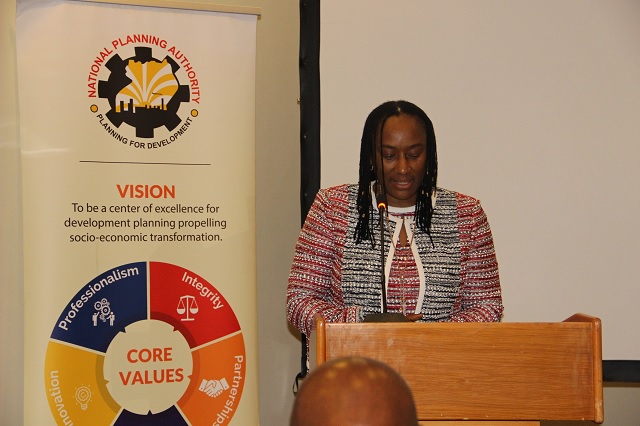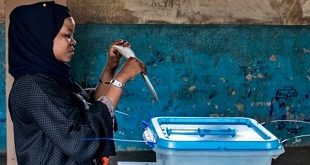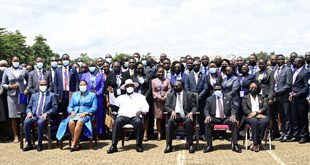
Kampala, Uganda | THE INDEPENDENT | Activists participating in drafting the third phase of the National Development Plan want the plan to promote good governance for socio-economic transformation of the country.
The plan replaces the Poverty Eradication Action Plan (PEAP) which ended in 2010 to guide the country’s development programmes in its journey to a middle-income country. The second Phase of the plan will end this year.
Government hopes the third phase will build on key gains made in the implementation of the first and the second phases to amongest others increase the average annual income in the pockets of every Ugandan for increased productivity and life expectancy.
Professor Pamela Mbabazi, the Chairperson of the Board of National Planning Authority says the goal of NDP III is to increase household income, improve the quality of life and create wealth.
However, development activists engaged in drafting the plan say without sorting out the challenges in the country’s governance matrix, the plan is bound to fail at its initial stages of implementation.
Dr Sallie Simba Kayunga, a member of National Governing Council of the African Union Peer Review Mechanism says streamlining the governance atmosphere in the country should begin with putting a stop in the creation of new local governments and a reduction in the large size of parliament and the Executive.
Dr Kayunga says making the government lean will free significant amount of resources for facilitating effective governance in the various local governments and ministries. He says effective governance is the central nervous system on which Vision 2040 must run for effective socio-economic transformation.
He explains that there is too much duplication of services in multiple government institutions, something that has reduced the efficiency of governance and bred an atmosphere of corruption.
“Poverty is a major security threat for a country with a vision of transformation. The National Development plan should, therefore, strengthen the intelligence system to better respond to emerging threats of terrorism in the same measure” he stated.
Dr Kayunga urged government to invest more in defence to pacify the Great Lakes region and create markets for Ugandan products. He says Uganda’s net expenditure on defence is half of her East African peers Rwanda, Kenya and Tanzania even when it plays leading role in the promotion of peace and security in the region.
Professor John Munene, the Executive Director of Pila Consult says socio-economic transformation of Uganda should start with transformation of the civil service to drive growth and development.
Professor Munene says the National Development Plan should prioritize productivity to achieve prosperity and modernization. He says Ugandans are the least productive in the East African region which renders the goals of socio-economic development weak.
Julius Mukunda, the Executive Director of the Civil Society Budget Advocacy Group (CSBAG) says the country has enough resources to finance her development if governance of the allocated resources could be made effective.
Mukunda says supplementary budgets have often been used to derail governance of resources in the country as it is requested in the midst of implementation of current financial year budget. This he says adds to the mess of billions of shillings being returned to the consolidated treasury to worsen the country’s governance issues.
He recommends that the third phase of the National Development Plan address wastage of resources by improving absorption capacities of local governments and ministries.
Other Activists want the Plan to enhance the capacity of local governments to mobilize local revenues.
The United Nations Development Programme is supporting the formulation of the plan.
UNDP Country representative Elsie Attafuah says the goal of the UNDP is to generate citizen consensus to inform the next phase of the National development plan.
Dr Asumani Guloba, the Director of Development Planning at the National Planning Authority (NPA) says National Development Plan II has laid the foundation for more robust development of the country by delivering electricity supply, improvement in roads infrastructure and peace and security.
Dr Guloba says challenges which remain for NDP III include youth unemployment, poverty reversals and low productivity which should form the basis of the next phase of the plan.
During implementation of NDP II, poverty index increased from 19 percent to 21 percent majorly because of dependence on rain-fed agriculture and lack of irrigation. NDP III prioritizes industrialization of the country.
The draft of the third phase of the National Development Plan is expected to be completed in September this year to guide the development of the next budget. It will then be formally launched to guide the development process over the next five years in May next year.
*****
URN
 The Independent Uganda: You get the Truth we Pay the Price
The Independent Uganda: You get the Truth we Pay the Price


